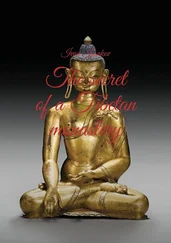Ivan Yefremov - The Land of Foam
Здесь есть возможность читать онлайн «Ivan Yefremov - The Land of Foam» весь текст электронной книги совершенно бесплатно (целиком полную версию без сокращений). В некоторых случаях можно слушать аудио, скачать через торрент в формате fb2 и присутствует краткое содержание. Город: Moscow, Издательство: FOREIGN LANGUAGES PUBLISHING HOUSE, Жанр: Исторические приключения, на английском языке. Описание произведения, (предисловие) а так же отзывы посетителей доступны на портале библиотеки ЛибКат.
- Название:The Land of Foam
- Автор:
- Издательство:FOREIGN LANGUAGES PUBLISHING HOUSE
- Жанр:
- Год:неизвестен
- Город:Moscow
- ISBN:нет данных
- Рейтинг книги:4 / 5. Голосов: 1
-
Избранное:Добавить в избранное
- Отзывы:
-
Ваша оценка:
- 80
- 1
- 2
- 3
- 4
- 5
The Land of Foam: краткое содержание, описание и аннотация
Предлагаем к чтению аннотацию, описание, краткое содержание или предисловие (зависит от того, что написал сам автор книги «The Land of Foam»). Если вы не нашли необходимую информацию о книге — напишите в комментариях, мы постараемся отыскать её.
appeared in 1949; it is a story of the art and culture of ancient Greece and ancient Egypt, of the people inhabiting the world of those days; the varying landscape of Africa is shown in all its awe-inspiring grandeur. A young Hellene, Pandion, is enslaved by the Egyptians, escapes and on his way back home has many thrilling adventures. With his friends, the Negro Kidogo, and Etruscan Cavius, he crosses the African continent and on reaching the sea carves a wonderful cameo, a symbol of friendship and loyalty.
The Land of Foam — читать онлайн бесплатно полную книгу (весь текст) целиком
Ниже представлен текст книги, разбитый по страницам. Система сохранения места последней прочитанной страницы, позволяет с удобством читать онлайн бесплатно книгу «The Land of Foam», без необходимости каждый раз заново искать на чём Вы остановились. Поставьте закладку, и сможете в любой момент перейти на страницу, на которой закончили чтение.
Интервал:
Закладка:
Cavius placed his heavy hands on Pandion’s shoulder.
“Our fate is now in our own hands, Pandion!” he exclaimed. The fires of passion gleamed in his eyes, usually dark and morose. “There are two of us; surely we can reach the waters of the Green Sea now that we have fought our way to the shores of the Great Arc. Yes, we shall return and on the way we shall be the mainstay of our Libyan companions, who know little of navigation…”
Pandion nodded his head but did not speak. Now that he stood face to face with the sea he felt absolute confidence in his own strength.
Kidogo’s voice rang out over the beach. The worried Negro, followed by a crowd of his excited tribesmen and his fellow-travellers, was seeking the friends. Pandion and Cavius were taken back to the river and were ferried across to the other side where several oxen awaited them for the transport of the wounded and their weapons arid other belongings.
A short stage would bring their wanderings to an end. The promise made by Kidogo under the trees on the banks of the Nile, when they stood beside their dying comrades after the terrible battle with the rhinoceros, had been fulfilled. All nineteen of the former slaves were given a hearty welcome and an opportunity to rest in a huge village near the sea, on the banks of a wide river that flowed parallel to the one they had floated down after leaving the Elephant People.
As far as Pandion and Cavius were concerned, the finest thing of all was the news that the Sons of the Wind, after an interval of twenty years, had, in the previous year, again visited those shores. “Sons of the Wind” was the name given by Kidogo’s tribe to the Sea People who had, from time immemorial, come periodically from the northern seas to the Southern Horn in search of ivory, gold, medicinal herbs and the skins of wild beasts. The local people said that the Sons of the Wind were in outward appearance like the Etruscan and the Hellene, only their skin was darker and their hair even more curly. The year before four black ships had come, following the ancient route of their forefathers. The Sons of the Wind had promised to come again as soon as the period of storms in the Sea of Mists was over. According to the calculations of experienced people, the ships should come in three months time. It would take them much longer to build their own ship, quite apart from the fact that the sea route was unknown to them. Pandion and Cavius doubted whether the Sea People would take them on board their ships together with ten of their comrades, but Kido-go, winking and chuckling mysteriously, said that he would arrange that.
There was nothing left to do but wait, although they were tormented by uncertainty. The Sons of the Wind might not return again for another twenty years. Pandion and Cavius comforted themselves with the thought that if the ships did not appear by the appointed time they would begin building their own ship.
Kidogo’s return was an event that was celebrated by noisy feasting. Pandion soon grew tired of the feasts; he grew tired, too, of hearing his prowess praised and of having to repeat stories about his native land and about the adventures he had been through.
Quite accidentally it happened that Kidogo, constantly surrounded by his relatives and friends, distracted by the admiration of the women, somehow got separated from Pandion and Cavius, and the friends met less frequently. Kidogo was now journeying into the new life by his own path which did not coincide with that of his friends. Those of Kidogo’s travelling companions who belonged to related tribes soon left for their own homes. The party that was left consisted of Pandion, Cavius and ten Libyans, who considered that their return home depended on the Etruscan and the Hellene.
The twelve strangers were accommodated in a big house of grey-green sun-dried clay, but Kidogo insisted that Cavius and Pandion move to a beautiful dome-shaped house near his own. After the many years of wandering, Pandion was able at last to sleep on his own bed. These people did not sleep on skins or bundles of grass on the ground; they made bedsteads, wooden frames on legs, which supported a net of plaited, pliable reeds, that gave rest to the body and was especially pleasant for Pandion’s wounded leg.
Pandion now had a great deal of spare time which he spent near the sea where he sat for hours either alone or with Cavius, listening to the regular rumble of the waves. He was in a state of constant alarm. His boundless vitality had been sapped by the vicissitudes of his long journey in a hot debilitating climate. He had changed greatly and admitted it himself. There had been a time when, given wings by youth and love, he had been able to leave behind the girl he loved, his home and his native land, following the urge to learn more of the art of the ancients, to see foreign lands and to learn something of life.
Now he knew the meaning of the bitterest nostalgia, he knew the meaning of joyless captivity, the oppressiveness of despair, the stultifying drudgery of the slave. Uneasily Pandion asked himself whether or not his creative inspiration had left him, whether or not he was capable of becoming a great artist. At the same time he felt that he had seen and experienced much that had left its mark on him, that had enriched him with a great knowledge of life, with numerous unforgettable impressions.
Pandion would often gaze lovingly at the spear presented to him by the father of his lost Iruma, the spear that he had carried through plains and forest, the spear that had so often saved him in moments of mortal danger. He regarded it as a symbol of manly courage, a guarantee of human fearlessness in the struggle against the Nature that reigns supreme in the hot expanses of Africa. He would carefully stroke the long blade before he returned it to the bag that Iruma had stitched. This piece of leather, brightly embroidered in wool, was all that was left to remind him of the distant, kind and gentle girl that he had met at the crossroads on his difficult journey home. With these thoughts in his mind Pandion turned to look at the dark mountains that stood between the ocean and the country he had passed through. The endless days of that long journey floated slowly before his eyes…
And over all stood the image of Iruma, full of life, and beckoning him irresistibly… She was the same as he had seen her the last time, standing against the trunk of the tree whose flowers were like red torches… Pandion’s heart began to beat faster. His imagination gave him a perfect picture of the sheen of her dark and tender skin, her mischievous eyes filled with the fires of passion… Iruma’s tiny round face drew, close to his and he heard the endearing notes of her voice…
Pandion gradually became acquainted with the manners and customs of Kidogo’s jolly and friendly people. They were tall, their black skins had a coppery hue, all of them were well built. Most of them engaged in agricultural pursuits. They cultivated the low palms for their oil-bearing nuts and also bananas, huge herbaceous plants with gigantic leaves that spread fanwise from a bunch of soft stems. The curved, crescent-shaped fruit of the banana plant grew in huge clusters and provided tasty and aromatic food. Bananas were gathered in large numbers and formed the staple diet of the people. Pandion enjoyed them greatly, eating them raw, boiled or fried in oil. The local inhabitants also engaged in hunting, gathered ivory and skins and also collected the magic, chestnut-like nuts that had cured Pandion of his strange torpor; they also kept poultry and herds of cattle.
There were many skilled craftsmen amongst Kidogo’s people — builders, smiths and potters. Pandion admired the work of many artists whose skill was no whit less than that of Kidogo.
Their huge houses, built of squared stones, sun-baked brick or hard, rammed clay, were all decorated with intricate and beautiful ornaments carved with great precision on the walls. In some cases the walls were decorated with highly coloured frescoes that reminded Pandion of the ancient frescoes in Crete. He saw earthenware vessels of beautiful shape and covered with fine drawings, delicately executed. In the buildings devoted to public meetings and in the houses of the chiefs there were many coloured wooden statues. Pandion greatly admired the carvings of people and animals in which characteristic features were portrayed by the faithful recording of the artist’s impression.
Читать дальшеИнтервал:
Закладка:
Похожие книги на «The Land of Foam»
Представляем Вашему вниманию похожие книги на «The Land of Foam» списком для выбора. Мы отобрали схожую по названию и смыслу литературу в надежде предоставить читателям больше вариантов отыскать новые, интересные, ещё непрочитанные произведения.
Обсуждение, отзывы о книге «The Land of Foam» и просто собственные мнения читателей. Оставьте ваши комментарии, напишите, что Вы думаете о произведении, его смысле или главных героях. Укажите что конкретно понравилось, а что нет, и почему Вы так считаете.












